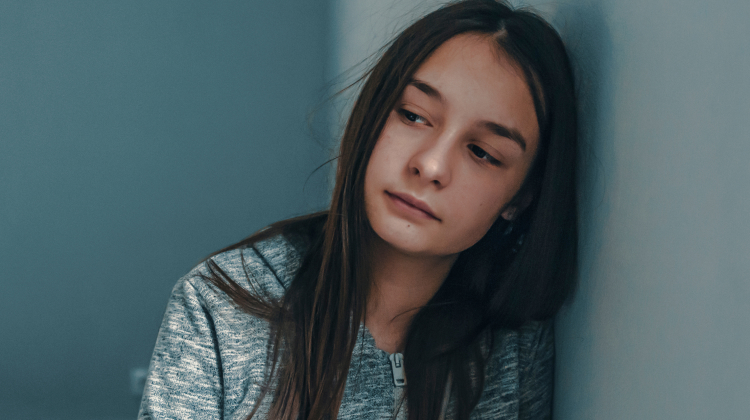Post-Vacation Depression: Definition, Symptoms & How To Beat It 2024?

Many people feel post-holiday blues after some time away from work. It’s temporary and also somewhat necessary to incentivize us to get back to eating well, exercising, and earning money to feel financially stable for the next trip.
The issue that can affect mental health is the belief that vacations are amazing and daily life is boring and unsatisfying. Subconsciously when we see other people traveling we may assume they’re always on vacation and leading the good life, which is a contradiction to reality, leading us to think that coming home is something to be sad about, even if our real lives aren’t so bad. Depression may take over if a balance between routine and excitement isn’t found after some time.
What Are Post-Holiday Blues?
The post-holiday blues are a time of temporary sadness and anxiety after a vacation. It’s a normal reaction to getting back to routine after the excitement and spontaneity of time off and traveling. The transition can be particularly difficult for some people, especially if they didn’t have a relaxing vacation or extra time to rest between traveling and work.
Why Do We Get Post-Vacation Depression?
People get post-vacation blues for a variety of reasons. It depends on commonly held beliefs around vacation, level of work satisfaction, and overall happiness with daily life. These are some reasons why we feel depressed after time off:
- Feeling as though there’s nothing to look forward to anymore
- Believing that you’re supposed to feel sad to come back to work, even if it’s not so bad
- Not recognizing the importance of routine for a sense of security and stability
- Not having a regular balance between variety, spontaneity, and routine
- Remembering only the highlights of your vacation and not the stressful parts (flights, delays, jet lag, disappointing hotels or restaurants, expenses, etc.)
- Hormone imbalance after drinking or eating too much with little rest
How you feel after a vacation greatly depends on how restful it was, so the majority of travelers doing city trips arrive home exhausted and not ready to get back to work.
Symptoms Of Post-Vacation Blues
Post-vacation blues can last for a few days to several weeks. These are some of the most common symptoms to watch for:
- Unmotivated to get back to routine (difficult to leave the house or take part in previously enjoyed activities)
- Constant fatigue, lethargy
- Difficulty working and concentrating
- Irritable, moody
- Inability to relax, anxious
- Trouble sleeping
- Changes in appetite
- Financial and work stress (feeling behind at work or that you spent too much on the holiday)
- Feeling of emptiness or hopelessness (no exciting goals)
- Constant complaining (a disappointing vacation or an overly exciting one, making daily life seem worse)
- Loneliness (working from home too much, seeing fewer people, etc.)
- Loss of identity (especially if you act as someone different when traveling)
How To Overcome Your Post-Travel Depression
Once you’re back home you might feel like nothing interests you much. These are some helpful tips and ideas to break out of that rut:
Get Out Of The House
Sitting at home doesn’t usually add variety and excitement to life. See if you can find anything interesting happening in your hometown or nearby. You can also use the blues as a push to go for more walks for fresh air and get nature time. Green space[1] for just 10 minutes a day reduces depression and anxiety.
Try A New Healthy Recipe
You might be recovering from an overload of unhealthy fat, sugar, and salt. It’s not always easy to eat well during the holidays, and it takes its toll on your hormones. The after-effects lead to lethargy, depression, and anxiety.
Try cooking new, interesting recipes inspired by your travels, and be sure to pack nutrient-dense foods. Your body might be nutritionally starving if it was eating restaurant foods for a while. B vitamins[2] and omega-3s[3] are particularly great for helping to reduce depression.
Limit Alcohol And Hydrate
If your trip included lots of alcohol or if you’re using it to cope with your return to daily life, you might be suffering its side effects, like anxiety and depression. Alcohol disrupts hormones (particularly for women[4]) and sleeps[5], which, unfortunately, only exacerbates depression symptoms.
Get Lots Of Rest
Vacations aren’t always restful. Maybe it was a city trip where you walked all day long or a long trip with multiple travel destinations. You likely had flights, car rides, buses, uncomfortable hotel beds, and changes in time zones, so you might be suffering from jetlag and exhaustion.
Make sleep a priority and try to set a routine of going to bed early to allow your body time to recuperate. It’s one of the best ways to stabilize hormones and decrease depression[6], along with time in nature. If work is stressful, give yourself downtime with a good book, massage, or relaxing yoga class to release the tension.
Sleep is your best defense against the health consequences[7] of misalignment of the different times on your local clock, the sun-clock time, and your body-clock time.
Set A New Routine
If settling back into your usual routine doesn’t sound appealing to you, think about what you can change to make it more enjoyable. Maybe that’s a better sleep schedule, cooking more, working less, or adding more me-time to your day. Give yourself some time to reflect on what you loved from your vacation that you could include in your life more regularly. It also may be time to try different employment or to change occupations.
Spend Time With Those You Love
Seeing friends and loved ones[8] decreases symptoms of depression. Talking with them about your travels can also bring back some of the spark of the trip and give you some insight as to what sort of trips you’d like to do in the future. The bonding time and feeling of close connection with friends and family members can boost your mood and even strengthen your immune system[8].
Have Fun
Laughing[9] and getting silly is an entirely underrated way to reduce depression. Call up the friends that make you smile the most or watch a goofy movie that makes you laugh out loud. Even silly cat videos blow up the internet for a reason, and we all need a few minutes of something light and easy in our days.
Pick Up A Fun New Hobby
One of the things people love the most about traveling is the newness of it all. You get to see, hear, smell, and taste things you’ve never experienced before. The saying, “variety is the spice of life,” holds a lot of truth. Humans need a fine balance between the known and unknown for a mixture of safety and excitement.
Think about what new things you’ve always wanted to try, like a fun dance class or a creative painting or pottery class. It could even be travel or nature photography, inspired by your trip. Maybe turning those photos into a blog of reviews and travel tips could keep your travels alive long after you’re home.
Plan Something To Look Forward To
Looking forward to a trip makes many people just as happy[10] as being on a trip. The anticipation and excitement boost feel-good chemicals all the same. Most vacationers feel happiest pre-trip, especially because many trips are exhausting. It’s an excellent reason to start researching your next destination, no matter if you have a date set in mind or not.
Make Buffer Days The Norm
Finally, one of the best things you can do when planning your next vacation is to give yourself a few buffer days to adjust back to regular life before starting work again. Especially if it’s a long and tiring journey, you’re going to need some extra time to rest and recuperate in order to have the energy for work. For those crossing time zones, it takes about a day per zone crossed[11] to re-acclimate. Without this time, you may find yourself more likely to be exhausted, which only worsens depression.
When To Seek Help
While the post-vacation blues are normal, there are some signs that it might be something more than temporary. If you’re experiencing any of these depressive symptoms for more than a few weeks after traveling, it could be a sign that there are deeper issues at play:
- Difficulty working or concentrating
- Unable to get back to a normal routine
- Difficulty sleeping or relaxing
- Feeling anti-social
- Worrying about finances spent on the holiday
- Feeling hopeless
Alternatively, long-lasting post-vacation blues can be a positive push toward making some much-needed changes to a life you weren’t happy with. A therapist can help you discover what is truly important to you and encourage you to plan realistic goals that put you on the path to the life you want.
Knowing your needs, desires, and motivations can guide you to take action in a way that works for you. Such ruminations are fraught with existential crises, too, making therapy great insurance for addressing depression.
Summary
Post-travel blues can be a sign of beliefs or normal routines that need changing. You can try to avoid post-holiday depression by giving yourself extra time to rest before returning straight back to work. It’s also important to add variety and include the highlights and special memories of your trip in your regular life. Finally, planning for the next trip helps people get excited again since having something to look forward to is one of life’s most important little joys.
+ 11 sources
Health Canal avoids using tertiary references. We have strict sourcing guidelines and rely on peer-reviewed studies, academic researches from medical associations and institutions. To ensure the accuracy of articles in Health Canal, you can read more about the editorial process here
- Meredith, G.R., Rakow, D.A., Eldermire, E.R.B., Madsen, C.G., Shelley, S.P. and Sachs, N.A. (2020). Minimum Time Dose in Nature to Positively Impact the Mental Health of College-Aged Students, and How to Measure It: A Scoping Review. Frontiers in Psychology, [online] 10. doi:10.3389/fpsyg.2019.02942.
- Coppen, A. and Bolander-Gouaille, C. (2005). Treatment of depression: time to consider folic acid and vitamin B12. Journal of Psychopharmacology, [online] 19(1), pp.59–65. doi:10.1177/0269881105048899.
- Logan, A.C. Omega-3 fatty acids and major depression: A primer for the mental health professional. Lipids Health Dis 3, 25 (2004). https://doi.org/10.1186/1476-511X-3-25
- Nih.gov. (2022). Are Women More Vulnerable to Alcohol’s Effects?-Alcohol Alert No. 46-1999. [online] Available at: https://pubs.niaaa.nih.gov/publications/aa46.htm.
- Colrain, I.M., Nicholas, C.L. and Baker, F.C. (2014). Alcohol and the sleeping brain. Handbook of Clinical Neurology, [online] pp.415–431. doi:10.1016/b978-0-444-62619-6.00024-0.
- Scott, A.J., Webb, T.L., Martyn-St James, M., Rowse, G. and Weich, S. (2021). Improving sleep quality leads to better mental health: A meta-analysis of randomised controlled trials. Sleep Medicine Reviews, [online] 60, p.101556. doi:10.1016/j.smrv.2021.101556.
- Roenneberg, T., Winnebeck, E.C. and Klerman, E.B. (2019). Daylight Saving Time and Artificial Time Zones – A Battle Between Biological and Social Times. Frontiers in Physiology, [online] 10. doi:10.3389/fphys.2019.00944.
- Guerra, P., Sánchez-Adam, A., Anllo-Vento, L., Ramírez, I. and Vila, J. (2012). Viewing Loved Faces Inhibits Defense Reactions: A Health-Promotion Mechanism? PLoS ONE, [online] 7(7), p.e41631. doi:10.1371/journal.pone.0041631.
- KURTZ, L.E. and ALGOE, S.B. (2015). Putting laughter in context: Shared laughter as behavioral indicator of relationship well-being. Personal Relationships, [online] 22(4), pp.573–590. doi:10.1111/pere.12095.
- Nawijn, J., Marchand, M.A., Veenhoven, R. and Vingerhoets, A.J. (2010). Vacationers Happier, but Most not Happier After a Holiday. Applied Research in Quality of Life, [online] 5(1), pp.35–47. doi:10.1007/s11482-009-9091-9.
- NPR.org. (2014). This Jet Lag App Does The Math So You’ll Feel Better Faster. [online] Available at: https://www.npr.org/sections/health-shots/2014/04/11/301579620/this-jet-lag-app-does-the-math-so-youll-feel-better-faster.



